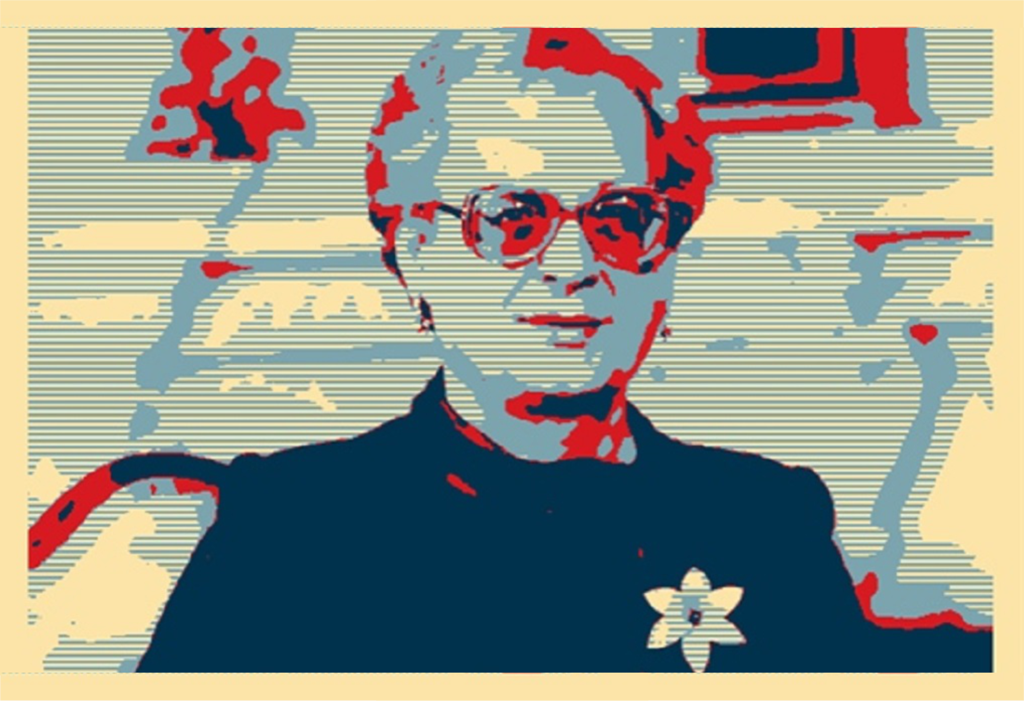
Agatha Barbara’s legacy in relation to gender equality struggle should be acknowledged, remembered and kept alive.
by Rachael Scicluna
Image by the IotL Magazine
[dropcap]R[/dropcap]eading the biography, Agatha – Il-Mara ta’ l-Azzar by Elizabeth Ebejer, one feels that Agatha’s revolutionary social and economic reform in women’s rights, employment and education ought to be celebrated more. Barbara was Malta’s first female legislator, five times cabinet minister, and the first Maltese woman to become president of the Republic in 1982.
Despite that 71 years have passed since Maltese women obtained the constitutional right to vote, and that the presence of women in politics has improved, according to Carmen Sammut’s The Road to Suffrage and Beyond, in 2017 ‘the percentage of female Parliamentarians is almost the same as that of the election of 1950.
Socialism and Feminism
The social and political climate in the 1940s was rather patriarchal and anti-socialist. Despite the fact that women had obtained suffrage and the right to participate in politics, the social and cultural norms were still lagging behind. It was widely perceived that women’s duty and loyalty should be towards the husband and not politics.
Thus, women’s entry in politics was not supported. Women’s place was in the domestic sphere. For example, in 1947 an article titled, Women in Politics by Jos. Grech Marguerat, which appeared in the Bulletin journal, stated:
It is a historical fact that women are an inferior class and without men they are failures.”
However, such patriarchal notions did not impede Agatha Barbara from being a socialist and feminist. A story which caught my attention was from the time when she worked at the Ammunition Depot. Here, she noticed that women worked in appalling conditions:
They worked under military discipline and had no facilities, not even toilets or changing rooms.”
Upon seeing this, Agatha spoke to the Captain and demanded that these conditions are improved. After a few days a tent was built for them.
On another occasion, a woman was sacked. Agatha immediately took to her defence with the Sergeant. This time, she ‘got the sack’. Being as determined as she was, the following day she waited for the Captain to inform him of the situation. Eventually, the Captain gave her the job back but advised her not to act so erratically in the future. One cannot wonder if the Captain would have sacked a man and told him to be quiet.
Injustice
Her entry in the Parliament meant that Agatha Barbara was the first woman to address the Gender Pay Gap. She was the first woman to earn the same wage as men. Taking such a feminist and socialist position was not easy at the time. Malta was undergoing uncertain political times as it was seeking constitutional independence from the British colonial rule. There was political schism.
On the 28th of April 1958, there was a national strike organised by the General Workers Union. Agatha always attended political meetings and protests. On the day of the strike, she spoke to a group of hospital workers who were on their way to work in a van. She advised them to avoid the crowds in order not to get attacked. This action was misinterpreted. A couple of weeks later she was arrested on the basis of trying to stop workers from going to work, intimidation and persecution. In prison she was treated inhumanely and would eat a can of corned beef every two days. Rats were purposely put in her cell. However, as Dom Mintoff stated:
Agatha Barbara took her post with dignity and showed bravery more than many men. She ended up in prison scared by rats, which were left in her cell purposely and she emerged out of prison a Socialist more than before.”
In a few weeks time, she was pleaded not guilty and released.
Education Reformation
Her devotion to minority rights and against any form of injustice morphed into education reformation. Education became obligatory and free for all students. She also ordered a survey of children with learning difficulties, and the vision- and hearing-impaired in the country, and established the first schools for them. Importantly, she ensured that science classes were open to students of both genders, unlike the high school that she had attended, which was restricted to males. Her agenda as a Minister of Education was progressive and inspired by strong democratic egalitarian principles which must be kept alive and develop further.
Agatha’s Love Letters
In 2014, love letters written by Malta’s so-called Iron Lady were discovered. These letters written by a young woman in love in her mid-twenties, shed light on her sensitive side. Agatha had met a Royal Navy officer, Derek Barnes who was stationed in Malta in the late 1940s. She consciously renounced to having a family in order to pursue her career in politics. This was not an easy decision. In fact, she expresses sadness about not being able to see this British chap again:
I am very pleased to have met you, but now I shall regret that meeting because most probably I shall not be able to see you again, unless of course you are again posted here or I come over there.”
Unfortunately, Derek at the tender age of 23 years old had a motorcycle accident and we have no information of whether Agatha ever found out.
![]()
It is in such a patriarchal and oppressive context that Agatha Barbara fought her way towards equality. Agatha was bearing the brunt of all this on her own without much support, without any role models. Thus, it is important to acknowledge her legacy in relation to the gender equality struggle! She was the voice of the muted groups—women, working-class, children, and disabled individuals.
Further reading:
Ebejer, Elizabeth. 2002. Agatha – il-Mara ta’ l-Azzar. Marsas Press: SKS